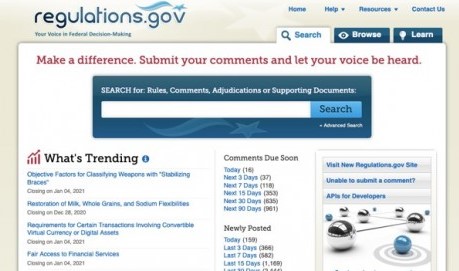Difenoconazole, fenbuconazole, ferbam, thiram, and ziram are all under a draft risk assessment in the EPA’s registration review process.

The deadline to submit comments to support keeping each of these fungicides registered for use is January 4, 2021.
All fruit and vegetable growers are encouraged to submit their comments to the EPA about the importance of each of the following fungicides: difenoconazole, fenbuconazole, ferbam, thiram, and ziram. Each fungicide must be commented on separately. You can submit your comments for each fungicide until January 4, 2021, at 11:59 PM ET to the EPA by following each of the links for the respective fungicides:
Difenoconazole:
- Submit comments at this link
- Active ingredient found in Inspire Super, Aprovia Top, Quadris Top, Academy
- Commonly used on tree fruit, berries, grapes, cucurbits, fruiting vegetables, leafy vegetables, onion; postharvest application on apple
Fenbuconazole:
- Submit comments at this link
- Active ingredient found in Indar 2F
- Commonly used on tree fruit, berries, peppers
Ferbam:
- Submit comments at this link
- Active ingredient found in Ferbam 75WDG, Ferbam Granuflo
- Commonly used on tree fruit
Thiram:
- Submit comments at this link
- Active ingredient found in Thiram Granuflo, Thiram SC, Defiant
- Commonly used on peaches, strawberries, and as an animal repellant
Ziram:
- Submit comments at this link
- Active ingredient found in Ziram 76DF, Ziram Granuflo, Ziram XCEL
- Commonly used on tree fruit, grapes, blueberries, tomatoes
At each website write your comments in support of each of these fungicides. Similar comments can be used to support each fungicide and you are welcome to copy and paste comments from one fungicide to the next.
Here are some points to consider when writing your comments to the EPA:
- Disease conditions are favorable every growing season requiring chemical intervention.
- Difenoconazole and fenbuconazole are integral for fruit and vegetable fungal disease control for the fruit/vegetable crops that you grow (be specific for the crops and diseases). For tree fruit growers, is especially important to control diseases, such as apple scab, powdery mildew, rust, fruit rots, sooty blotch and flyspeck, cherry leaf spot, peach scab, peach leaf curl, and black knot.
- Difenoconazole and fenbuconazole are members of a unique FRAC group and is commonly used as a rotation partner with other FRAC Groups to manage fungicide resistance prone fungi causing apple scab and brown rot.
- Ferbam/Thiram/Ziram are broad-spectrum fungicides that protect fruit crops from many fungal diseases and are important fungicide resistance management tools in your operation.
- Include an estimate of how much money you would lose due to crop loss resulting from disease without the availability of each of the fungicides. Including dollar amounts will have a lot of impact.
Source : psu.edu